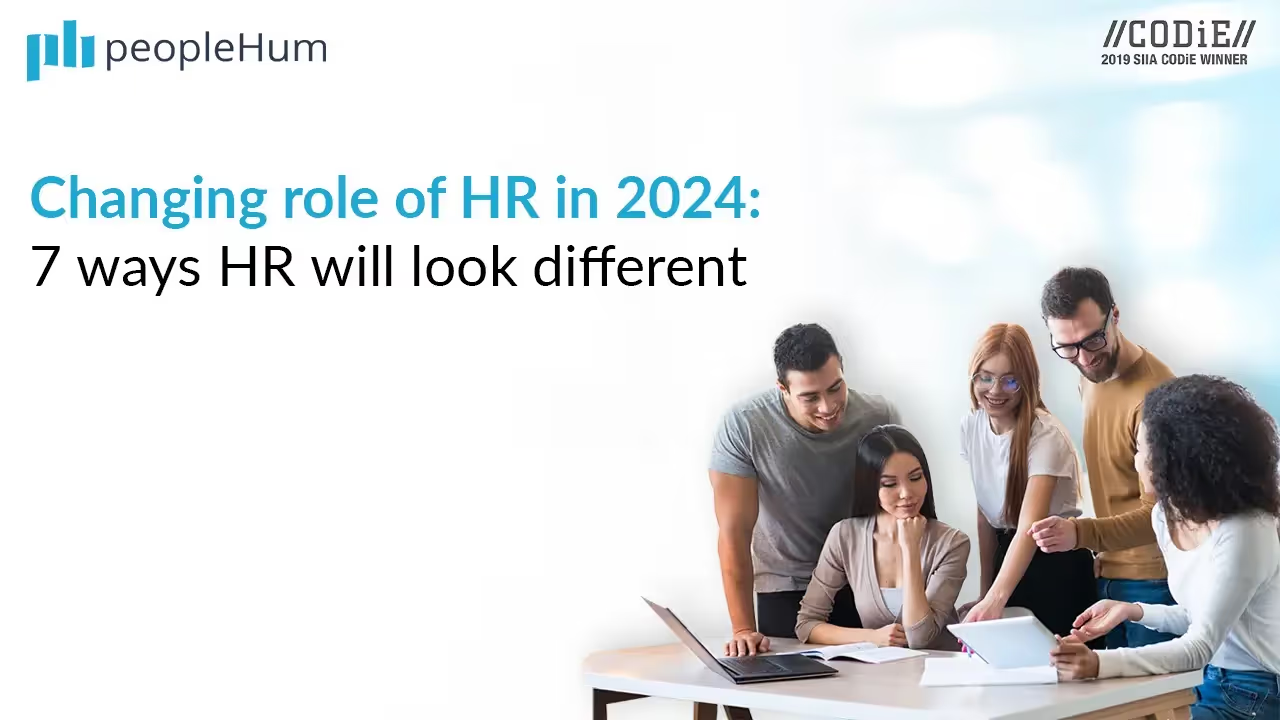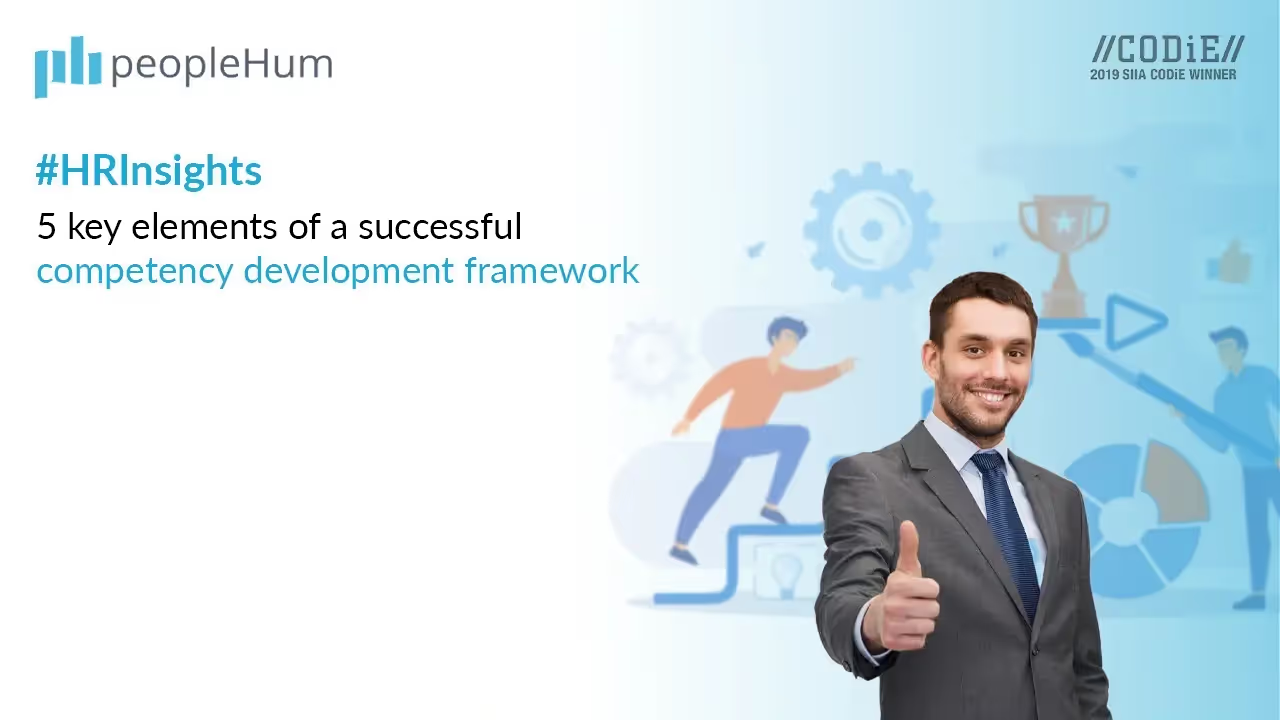Back in 2021 and 2022, HR had one major role to play - Adapt. Those were remarkable years with many organizations showing their capabilities and resilience in adapting their operations to the Covid-19 crisis. We saw employees display their creativity and potential as they adapted to work from home situations.
Now, with 2024 underway, the question arises: Will we slip back into old habits or switch from adaptability to transformation? As organizations continue to cope with post-pandemic developments, the emerging HR trends of 2024 will look towards transforming the workplace and shaping the future of work.
7 ways Human Resources will look different in 2024
1. The Talent War continues
The events following the Great Resignation have left a volatile talent market. Recruitment job postings outnumber the job seekers, as organizations battle in a hyper-competitive job market. In order to not get left behind in the talent war, in the changing role of HR will need to increase its efforts in talent acquisition and retention, creating a corporate image and company culture that is appealing to both new and current employees.
As the talent migration continues in the HR trends in 2024 and so do the activities that fuel it, companies must focus on in the changing role of HR:
- Create career paths and succession plans that are clear and transparent. Encourage two-way communication between management and employees, prioritise diversity and inclusion, and don't limit career advancement to only managerial positions.
- Encourage just-in-time recognition, non-work engagement, and the ability to disconnect after work. This will help to boost employee engagement by making each employee feel like they are more than the sum of their productivity outcomes.

2. Implementing people analytics
People analytics, virtual working technology, and learning platforms will represent the top HR trends of 2024. Organizations can no longer afford to opt out of the implementation of people analytics. As one of the biggest HR trends of the year, Human Resources needs to focus on the following points during the changing role of HR:
- Human Resources needs to move away from intuition and embrace data to make informed and confident decisions.
- HR needs to be a vital source of value generation, and must therefore be trained in analytics and strategy.
- In order to reap the investment on people analytics, organizations must actively be transparent in their communications and continuous in their learning.
3. Maintaining diversity, equity and inclusion
According to a study by McKinsey, the companies that fall in the top quartile for diversity in leadership were 25% more likely to have above-average profitability than their counterparts that fall in the bottom quartile. But, despite the positive numbers, many orgaizations still fail to realise to see the D&I strategy as a worthwhile investment or as a key cultural signifier.
The changing role of HR needs to work with data-backed insights to strengthen the case for diversity and inclusion. Therefore, a clearly communicated plan and the active incorporation of D&I into the selection and training of managers will enable to address the same qualities in leadership roles.
Apart from the leadership of it all, the major shift into remote and hybrid working has also significantly impacted efforts in diversity, equity and inclusion. With teams being so widely distributed, the changing role of HR must be more intentional in maintaining the equity agenda. Getting rid of the geographical barriers that prohibits the talent pool would be one of the major ways to create a positive impact on hiring and candidate experience.
4. After going hybrid, there’s no going back
Hybridity and flexibility have been the heroes of the pandemic. But the fact remains that most of us never really reimagined the workplace in the hybrid setting, but only repackaged the physical office setting to a digital one - thus being inconsistent in our efforts to create an equitable hybrid work experience. Therefore, the emerging HR trends for 2024 will see a re-engineering of HR operating structures into HR structure models 2024 that are cloud-based and more intentional in re-orienting to asynchronous operating models.
The latest trend in HR practices is that it will no longer be a one-size-fits-all approach. Employees have consistently called for more flexibility, and HR has refocused its approach to creating a company experience that is employee-centric. The pandemic showed employers the hard truth that different employees have different needs. And in order to have the advantage in an extremely talent-driven market, organizations will need to offer employees with the autonomy to follow the workplace model that suits their needs.
5. HR decentralized
The typically centralised HR function must give way to a hyper-local HR structure models 2024. HR will need to outsource its connectivity to ever employee in every part of the company via their managers. This applies to different elements of the HR function - from strategy and policy-making, to events and employee engagement. This also means an overhaul in the way managers are evaluated and selected.
Where once they were the task-orchestrators, now companies will promote those with leadership and coaching/mentoring skills. With this top HR trend of 2024, managers must now be able to effectively mobilise organizational talent without the need for centralised HR control.
6. Manifesting the ‘New’ of work
The ‘New’ of work is no more the transactional exchange of labour for compensation. It is now focused toward the employee’s feelings of purpose, fulfilment, and employee wellbeing. However, the disconnect between HR policies or leadership strategies, emotional intelligence and actual employee sentiment is by a wide margin.
For example, a recent Gartner survey found that while 75% of leaders believe they run a flexible culture, only 57% of employees agreed. Therefore, the changing role of HR and leadership needs to tailor their strategies according to the sentiment, aspirations and needs of the workforce on Ground Zero.
360-degree reviews, pulse surveys, employee one-on-one’s, and frequent check-ins are methods that HR can use to detect and address problem areas within the organization. By developing a two-way communication strategy, HR can take employee voice into account and base future ideas and leadership communication on employee input. This can help create a closed feedback loop and also help shape effective follow-ups.
7. The Metaverse is here
While virtual reality isn’t a new ballpark, the metaverse has opened up new horizons for the changing role of HR operations. Remote teams still struggle to find the real human moments such as once was in water cooler meetings and coffee breaks. The emerging HR trends of 2024 views the metaverse as the bridge that could potentially connect the divide. From onboarding to conducting meetings, to creating casual spaces where employees can connect and socialize, the metaverse could be the key to the future of the workplace.




































-min%202.avif)













